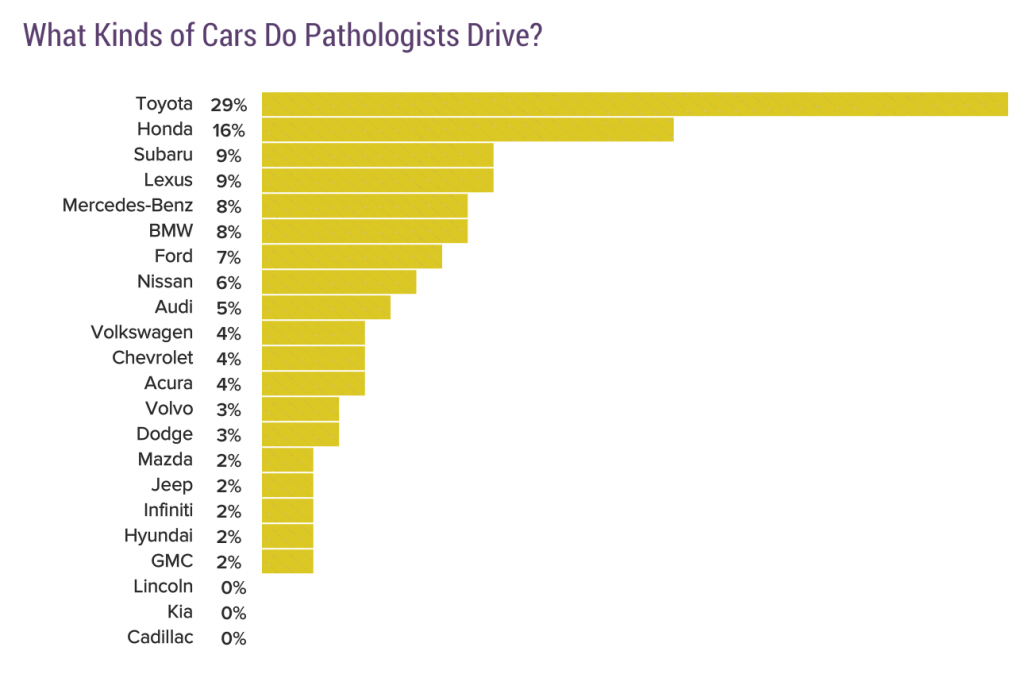Are Pathologists Happy or Burned Out?
 Have been following the stories about physician burn out for many years and could never convince myself that it was a “new thing”. I suspect that for many decades there has been some degree of burnout among physicians, just as there are with other professions. Some studies would argue that it has increased in the era in the last few decades of managed care, hospital employed physicians, electronic medical records and increased regulations.
Have been following the stories about physician burn out for many years and could never convince myself that it was a “new thing”. I suspect that for many decades there has been some degree of burnout among physicians, just as there are with other professions. Some studies would argue that it has increased in the era in the last few decades of managed care, hospital employed physicians, electronic medical records and increased regulations.
My opinion on this observing or practicing over the past 25+ years is that some degree of burn out has always existed. Social media and non-stop news allow for more coverage of this issue than perhaps people talked about in the past. Anecdotally, as an orderly in college I watched a pulmonologist and cardiologist each leave their practices in Michigan to be cattle ranchers in Montana and Wyoming. Another internist left to teach college. I watched many physicians in medical school leave their practices to work for insurance companies or industry full-time. All claimed the demands and stressors of their occupation required them to hang up their stethoscopes and find happiness elsewhere. And they were self-employed without EMRs, increased managed care or working under the same level of burdensome regulations.
Medscape, as it has for many years, recently conducted a survey about physician personal happiness and work burn out. Physicians in 30+ specialties were surveyed this year.
Pathologists have among the highest job satisfaction at work. Historically, pathologists are in the top 3 to 5 specialties for work satisfaction, although the overall job satisfaction remains below 50% which seems to be a very common denominator over the years. In medical school I don’t think I recall any surveys showing more than 50-60% but it seems less now. Less than one in three pathologists surveyed are “happy” at work.
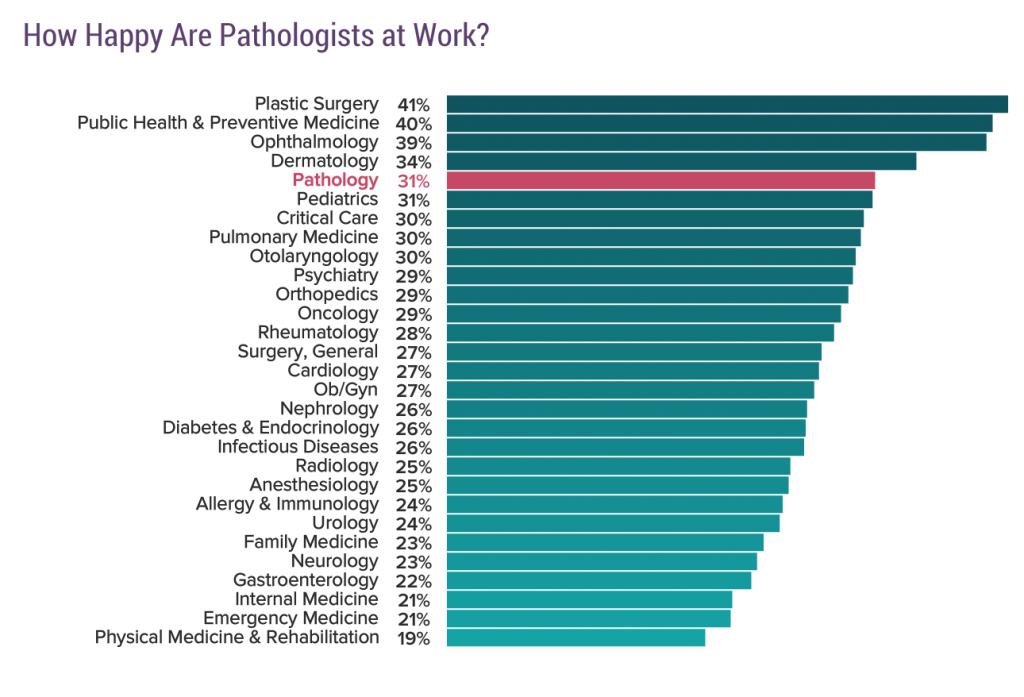
Pathologists, along with cardiologists, oncologists, infectious disease specialists and neurologists are among those specialists with the least amount of “happiness” outside of work. The survey related this to either burn out, depression or both. Not sure about this. Beginning to think those who responded to the survey are perhaps not satisfied at work or home and there is some bias here. Perhaps the “happy” pathologists didn’t take the survey.
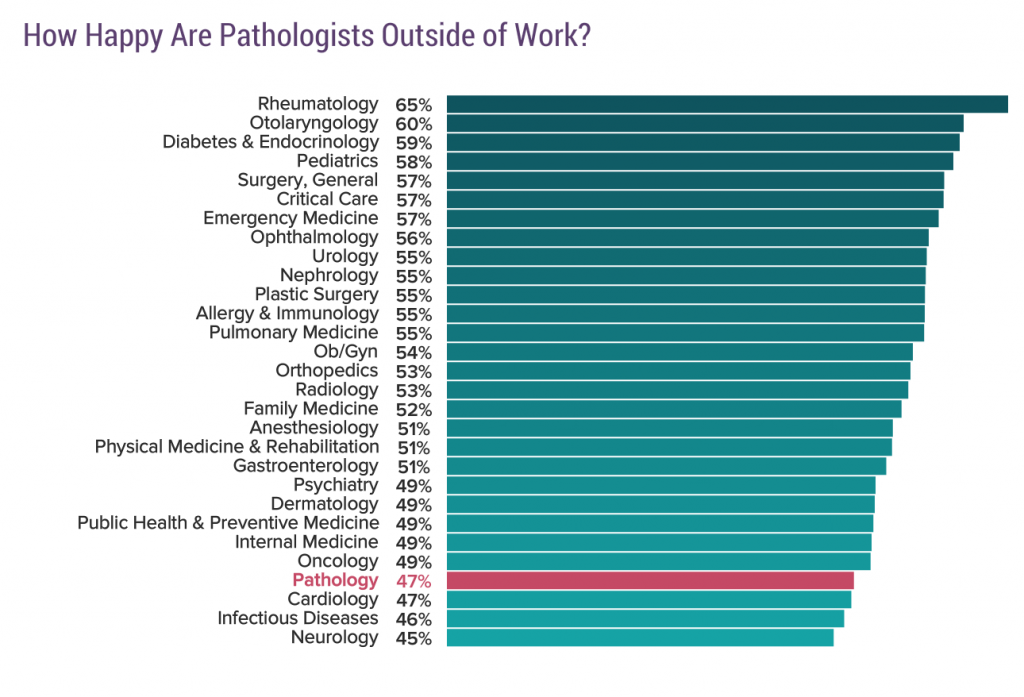
How do pathologists cope with burnout? Apparently, we isolate ourselves from others. Again, not sure about this. While we are often not the “life of the party” and department holiday parties tend to be subdued, we live an isolated existence. One of my attendings told me during training, get used to being with your microscope because you are going to see more of her than your spouse. If you are working 50-60 hours a week there is some truth to that. But don’t truck drivers or dry cleaners or autoworkers see their equipment more than their families during working hours as well? On the other hand, one can conclude that burn out or depression could lead to further social isolation. Or does being a pathologist, alone with your microscope, slides and LIS put you at increased risk for being anti-social?
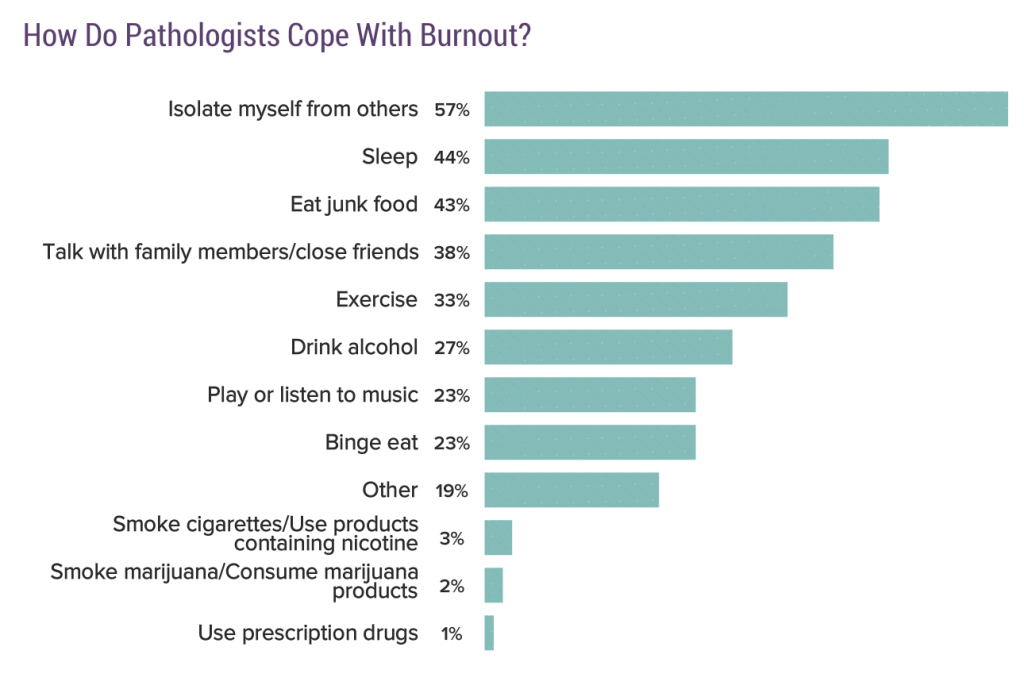
What is it about being a pathologist that can contribute to burn out? In casual discussions with colleagues at the water cooler and meetings, all of these seem to resonate. Unlike clinicians, however, I would argue that EMRs have helped pathologists as data gatherers and those who can consume what is in the EMR rather than being responsible for charting within the EMR. Unlike 25+ years ago, we have much more information available to us than having to go to radiology to see the images or – gasp – go up on the floor or wards and read a paper chart. Of course, the EMR data is only as good as what is entered and what data is there. If the operative report isn’t there – gasp again – you may have to the call the surgeon and ask him/her for additional information. I have never personally found a lack of respect from colleagues (assuming clinical colleagues) to be an issue. In fact, quite the opposite with surgeons, oncologists, radiologists, gastroenterologists, pulmonologists, urologists, dermatologists and others we interact with quite often. While we have been compared to Brienne of Tarth in Game of Thrones, I think pathologists enjoy a high level of respect from our clinical colleagues. While they might argue with our opinions, I have seen exactly none saddle up to the microscope claiming they can do any better.
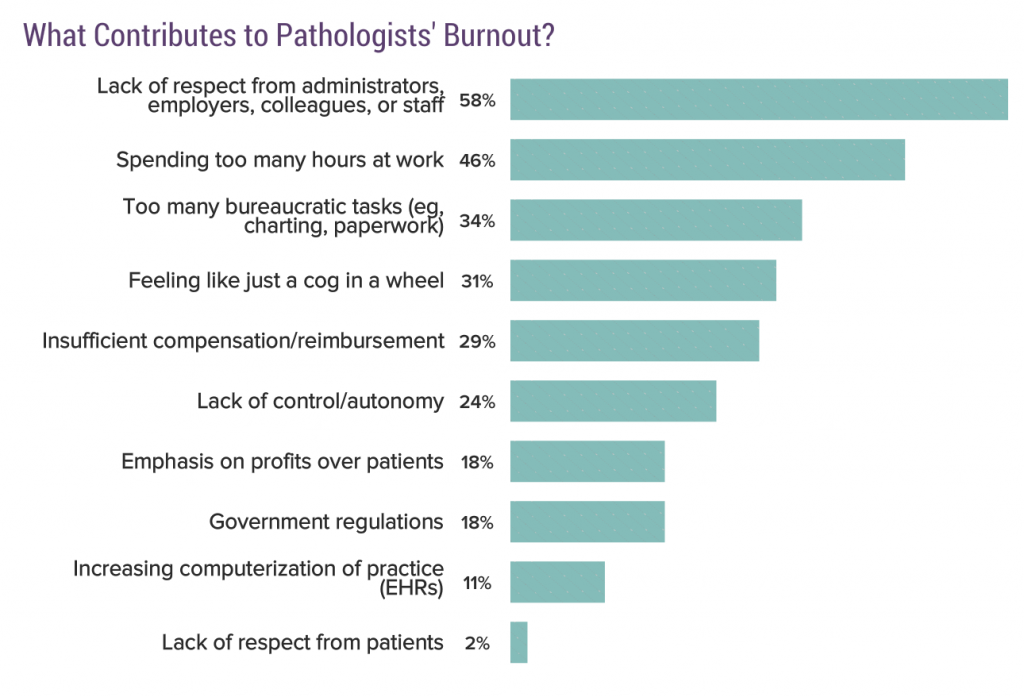
Among many other questions, the survey asked what kind of cars do pathologists drive? Toyota, Honda and Subaru make up more than half of the vehicle type. Not sure what this has to do with anything but there it is.
